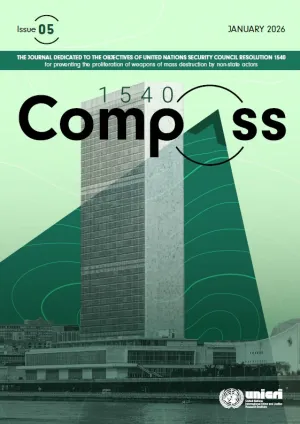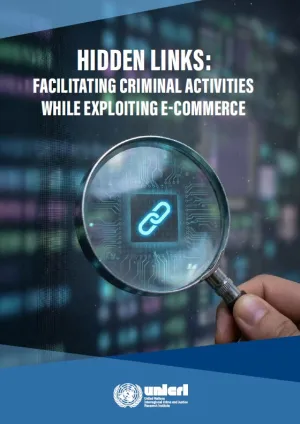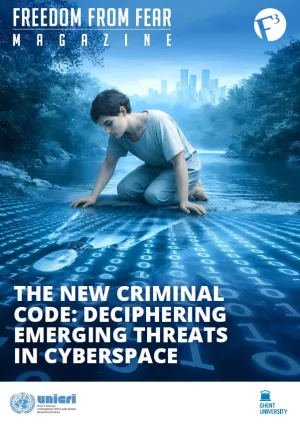
A pilot initiative promoted by UNICRI and Fondazione ASI CE ETS
The province of Caserta in southern Italy is a territory marked by contrasts. On one hand, it is home to a thriving network of industrial and commercial enterprises operating in sectors such as agri-food, luxury goods, construction, automotive, and logistics, many of which successfully export to global markets. On the other hand, it remains deeply affected by the persistent presence and influence of organised crime. Over the years, widespread environmental degradation and illegal waste burning have earned the area the name “Terra dei Fuochi” (Land of Fires), highlighting the urgency of coordinated responses to reclaim and protect the region.
In this context, UNICRI, in cooperation with the Fondazione ASI CE ETS, has launched a pilot project aimed at promoting effective public-private partnerships (PPPs) and advancing social inclusion to strengthen Caserta’s resilience to organised crime. The initiative is supported by the ASI Caserta Consortium and the Italian Ministry of Justice (Department of Penitentiary Administration), within the framework of the broader institutional cooperation platform known as Mi riscatto per il futuro – ASI Caserta Model.
A Strategic and Action-Oriented Approach
The project’s core objective is to identify and promote good practices that can reduce the impact of organised crime on Caserta’s social and economic environment. It aims to develop, test, and scale up models of cooperation between public institutions, private sector stakeholders, and civil society to foster security, lawful economic development, and rehabilitation of individuals in conflict with the law.
The project focuses on specific criminal phenomena that pose serious threats to local communities and economic resilience, including:
- Corruption and illegal protection payments
- Home invasion and threats to personal security
- Counterfeiting of food and goods
- Systemic infiltration of the legal economy
Through a participatory and evidence-based process, the initiative will map the criminal strategies used to exert territorial control and propose practical measures to counteract them, while unlocking the potential of local economic and social assets.
Phased Implementation
The project unfolds over three main phases:
Pre-Implementation Phase
A Project Committee will be established with representatives from all key partners. This body will oversee the strategic direction of the initiative, review the work plan, and guide adjustments as needed.
Phase 1 – Action-Oriented Research
UNICRI and its partners will carry out a detailed analysis of organised crime trends and vulnerabilities in Caserta. Drawing on desk research, stakeholder interviews and field engagement, the study will:
- Investigate how criminal networks undermine sustainable economic development
- Assess existing responses by law enforcement, civil society, and the private sector
- Identify good practices and areas for improvement, particularly in PPP-based approaches
The research will also inform a strategic roadmap for targeted policy, training, and crime prevention interventions.
Phase 2 – Capacity Building and Awareness Raising
Based on the research findings, a comprehensive training and awareness programme will be delivered to:
- Support public and private actors in designing and managing effective PPPs
- Promote knowledge-sharing on investigative tools and rehabilitation practices
- Enhance protection of legitimate business activities from criminal interference
Training materials will be tailored to different audiences, including law enforcement, local businesses, citizens, and the media. Workshops and outreach events will foster dialogue and engagement across sectors.
Phase 3 – International Scaling
The final phase aims to expand the impact of the project beyond Caserta. Lessons learned and good practices will be consolidated into a technical assistance programme for application in other contexts, particularly in developing countries and Latin America. This will support wider efforts to build resilience against organised crime while promoting social and economic inclusion.
Expected Impact
Through this initiative, UNICRI and its partners seek to:
- Strengthen the capacity of local institutions and stakeholders to respond effectively to organised crime
- Support the rehabilitation of individuals under custodial or non-custodial measures through employment and social reintegration
- Promote opportunities for youth at risk or in contact with the justice system
Ultimately, the project aspires to contribute to a safer, more inclusive and economically vibrant Caserta setting an example of innovation and resilience for other regions facing similar challenges.


